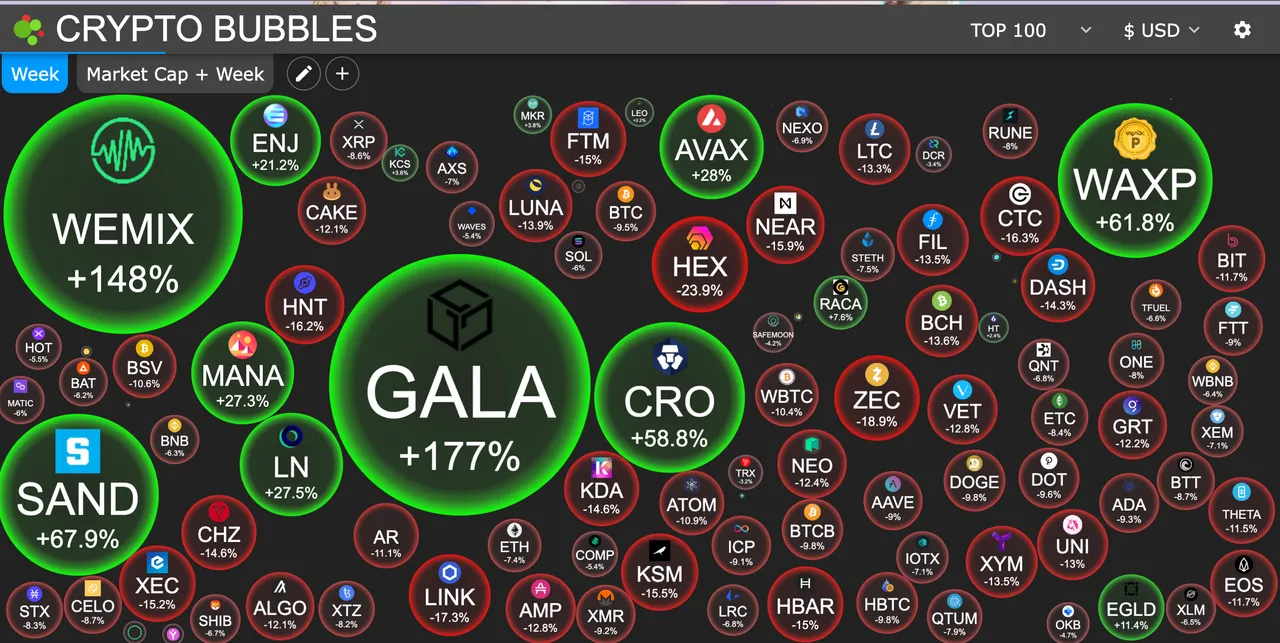
Image screenshot from https://cryptobubbles.net/
I came across this post by @edicted, presenting the case of thinking about Hive as a country with growth potential.
It is a fantastic thought-provoking read. So much so that it 'provoked' my thoughts enough to write this.
Basically, he echoed a tweet by Dr Natasha Che which argues that:
Instead of pricing Ethereum, Solana & so on like companies, you should price them like countries.
What caught my attention about the post by @edicted is the 'warning' that transaction fees and the likes would be high once the price of the token increases. The example given was how those who bought loads of ETH and continue to use it are unfazed by the gas fees denominated in dollar value, because they could afford to spend the ETH they acquired at lower prices previously.
In his words:
ETH fees are low, you just don't have enough ETH.
Excellent point.
I also picked up some bootlicking skills from him! 😃
Jokes aside, this Blockchain as Countries perspective is pretty profound and helps me tremendously in solidifying my own crypto thesis.
It fits quite well with my key thoughts about crypto assets, which is: *If I don't have it or want it, I shouldn't care about its price.
Whenever I check the crypto market listings, there are always far too many projects which pumped that I don't hold any of. Even in a market dump, there will be some that are in green while many others are in red. It is human nature to feel like we have lost something if our crypto babies are not among the high performers.
I have gradually trained myself to ignore such tokens. If I don't have it, I don't care. It's none of my business. I equate it to some hypothetical rich and famous movie stars living in a high-end district getting offers for their house that amount to 10x their original purchase price. I don't have the house in the first place, so why should I care.
If I am not early enough to have bought cheap Ethereum, why should I care too much about its rise?
More importantly, if I don't want to use Etheruem, and if I am sure I don't want to use it in the future, why should I care?
Even if Country X is a prosperous country with good potential for the future, if I have no intention to migrate or travel there, I shouldn't be greedy to want some of its currency at its all-time high. If I do, there will be too many to bear unnecessary risk on.
That is how I treat most of the blockchain projects tokens these days. Solana, Elrond, etc had pumped... I don't use them, and see no need to use them in the future, I wish them well and would not invest in them, until I am convinced I need to use them.
Conversely, projects or tokens that I use or see a future personal use, such as bitcoin or Hive, I will buy and hold them in good amount. In short, I see these as countries I want to be part of, and thus investment in them makes sense.
Their token price may rise, possibly causing transaction costs to rise correspondingly then, but if I am the early settlers in that blockchain, and have plenty of those token, I would be fine.
So indeed, it boils down much more to the personal use case of the project if we think about blockchain as countries vis-a-vis viewing them as equity investments.
So indeed if blockchains are countries, I want to be citizens of liveable and flourishing blockchain projects such as Hive.
Hive is one country that has many good neighbours who will write and discuss how one can survive in the cryptosphere. There are others who build businesses on it so that value is created, such as the Leo Finance and Punks on Hive, and the likes.
Most importantly, it is still a 'third world' country according to @edicted, so things are cheaper and there is plenty of room for growth. 🤣
P/S: Certainly not to be treated as financial advice, just sharing some thoughts. And no one will stop me from migrating to another blockchain anytime in this era.
